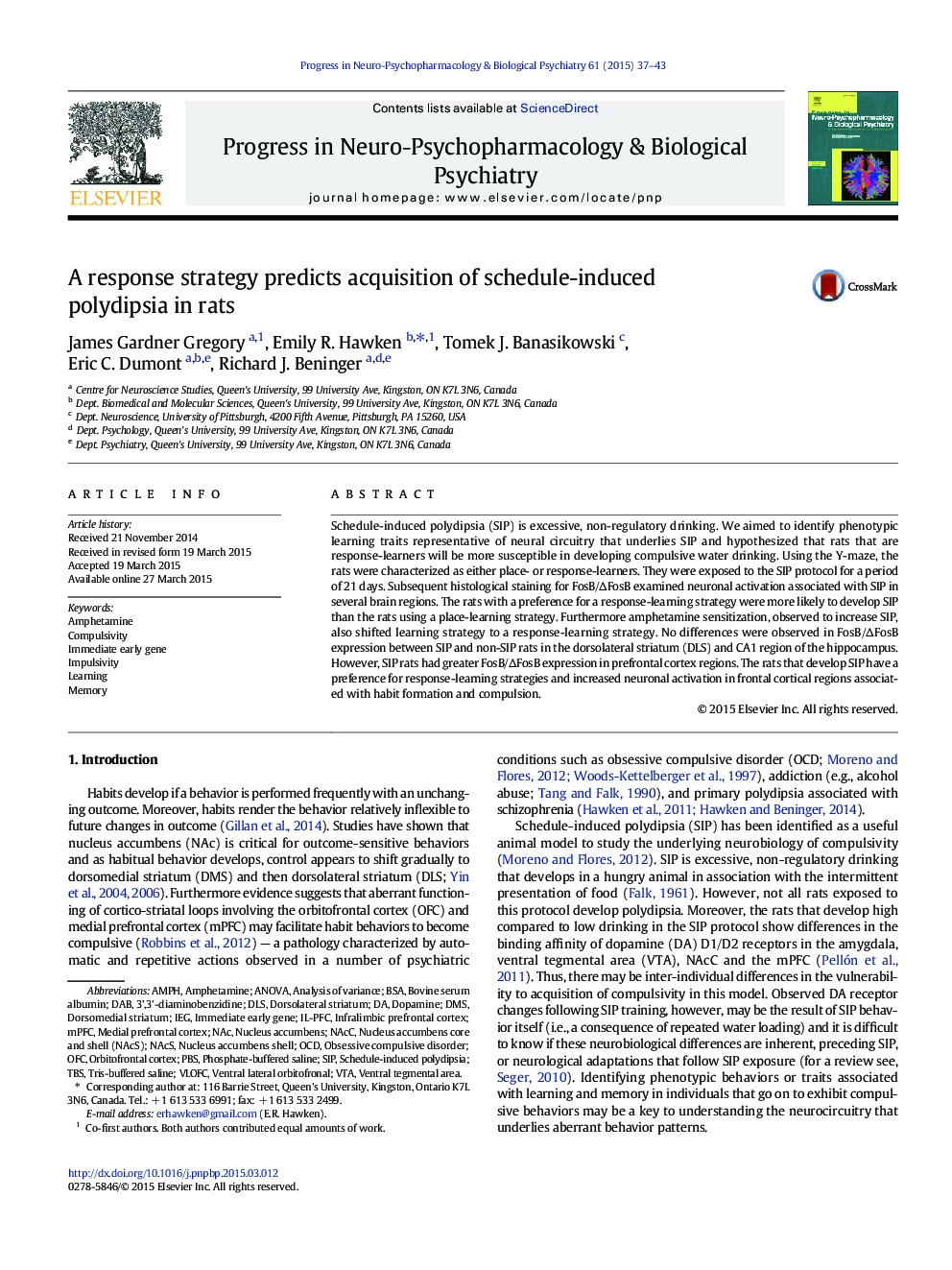| کد مقاله | کد نشریه | سال انتشار | مقاله انگلیسی | نسخه تمام متن |
|---|---|---|---|---|
| 2564703 | 1561033 | 2015 | 7 صفحه PDF | دانلود رایگان |
• Response learning strategy predicts acquisition of schedule induced polydipsia.
• Amphetamine sensitization shifts spatial learning strategies from place to response learning.
• No differences in FosB/ΔFosB expression between SIP and non-SIP rats in the DLS and hippocampus
• Increased FosB/ΔFosB expression in SIP rats compared to non-SIP rats in the MPFC and OFC
Schedule-induced polydipsia (SIP) is excessive, non-regulatory drinking. We aimed to identify phenotypic learning traits representative of neural circuitry that underlies SIP and hypothesized that rats that are response-learners will be more susceptible in developing compulsive water drinking. Using the Y-maze, the rats were characterized as either place- or response-learners. They were exposed to the SIP protocol for a period of 21 days. Subsequent histological staining for FosB/ΔFosB examined neuronal activation associated with SIP in several brain regions. The rats with a preference for a response-learning strategy were more likely to develop SIP than the rats using a place-learning strategy. Furthermore amphetamine sensitization, observed to increase SIP, also shifted learning strategy to a response-learning strategy. No differences were observed in FosB/ΔFosB expression between SIP and non-SIP rats in the dorsolateral striatum (DLS) and CA1 region of the hippocampus. However, SIP rats had greater FosB/ΔFosB expression in prefrontal cortex regions. The rats that develop SIP have a preference for response-learning strategies and increased neuronal activation in frontal cortical regions associated with habit formation and compulsion.
Journal: Progress in Neuro-Psychopharmacology and Biological Psychiatry - Volume 61, 3 August 2015, Pages 37–43
